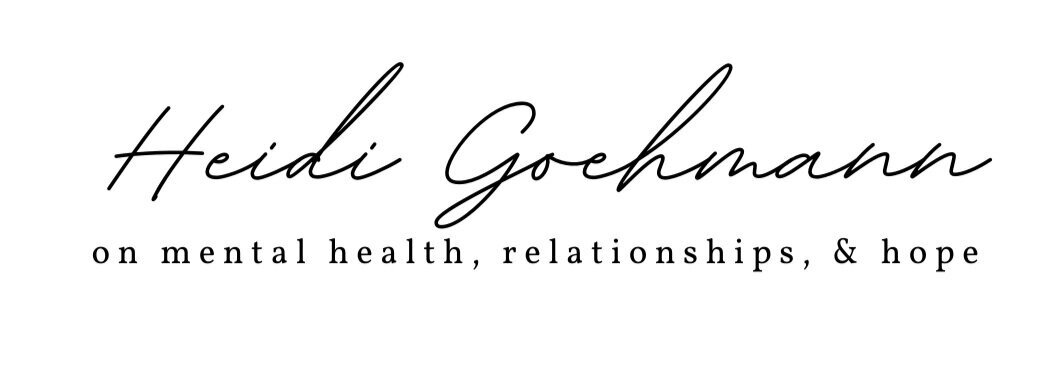Frustration: A Wrestling Emotion
My daughter has taken to remind me each day that college websites and academic portals are not for the faint of heart.
“It is not you,” she reminds me gently, “Most things I have accomplished on a college website, I’ve accomplished by clicking links and just seeing what happens.”
I have needed this reminder frequently as I attempted to sign up for an academic email, access my financial aid, find my course schedule, and organize myself dependent on an entirely new system in my life. This part of doctoral work really should not be this hard, yet somehow hard is exactly what it is. As I click through various modules and blurbs, the consistent cognition in the back of my mind that rears its ugly head is: I feel dumb.
Dumb is not the problem though;
new might be,
or unfamiliar,
perhaps interesting design choice,
or maybe more technologically advanced than it was yesterday.
One of the burdens and surprises of adulthood is that we are constantly learning new things. The ending of childhood does not make you an expert, and learning almost demands attention our whole lives long. Dear 18-to-26-year-old, you are not dumb because you are trying to figure out how to manage an apartment and a schedule, pay your bills, and still make time for friends, and it all feels hard. Dear middle-aged lovelies, you are not dumb because life feels heavy and you haven’t figured out how to parent your kids or yourself yet. And to those growing in wisdom, yes, the social security and healthcare system are beyond our control and understanding. It is not you; it is the systems.
All of us can name several components of life we’d rather not “learn” if we were given any say in the matter.
Welcome to frustration.
frus·tra·tion
/frəˈstrāSHən/
a felt sense of impasse, that something is either unchangeable or possibly unnavigable, related to cognitive dissonance or feelings of helplessness
Merriam Webster online relates frustration to something being unresolved, unmet needs, or that sense of insecurity that comes with feeling “unable.” We are not always “able” as humans. This is solid truth, worthy of acceptance. Not so that we exist in defeat, but so that we can click on the links to see what might happen, if you will. Our curiosity stays available to us in the dissonance or in the messy middle ground of learning, when we are willing to be human, to be realistic that we are learning and growing, and sometimes that will feel like junk.
How do we grow as people, have growth-oriented spirits, and still allow the challenging emotions of growth to rise and fall within our daily lives?
First, normalize wrestling as a spiritual and psychological practice. Life ebbs and flows in its sense of navigability. There are time and situations where we will feel like rockstars, the Taylor Swifts of whatever is in front of us. And even Taylor Swift, I am certain, has lyrics that don’t roll out the first time she sits down to write. So much of the meaning in life are the things we find a touch confusing. Frustration pricks at what is unknown, or the fact that we don’t know everything. Whether trying to build a piece of Ikea furniture or starting a new season in our lives, it is easy to collapse under what we don’t know. Here, as in many places in life, we benefit from the compassionate response to self of “Of course!”
Of course, this is challenging
Of course, we aren’t experts at everything
Of course, we are tired
Of course, we need a second to gather our emotions and our thoughts and ourselves
Second, lighten the hand of wrestling. Spread your arms wide and say all of the above, invite an open spirit even though your mind feels the weight of the many roadblocks in life. Moving your body helps your brain and nervous system receive the information and install it, like uploading an update to the operating system.
Frustration can quickly escalate as an emotion because it feels both constricting and pressurizing. Our nervous systems beg us to scream into a pillow and relieve the pressure, so let’s do that. When you sense the rise of frustration, which is pointed more internal than annoyance, which is often relational or pointed externally, let it out somehow: spread those arms wide, push against a wall, belt a ballad, or scream in your backyard like a person accomplishing big things and in need of some relief along the journey.
Last, define what is yours to wrestle, or what needs to be revealed rather than wrestled. I have to challenge myself to step back and take to heart what I tell my therapy clients, “This is problem, but is it a problem to solve, or simply one to encounter?” We are solving people, particularly in 21st century Western culture. Stepping back really is a glorious and under-appreciated answer to challenges in life. Sometimes we step back for a moment, taking a breath and a beat. Sometimes we step back for longer than a heartbeat, letting new ideas rise, or things resolve themselves, the path made clearer because we watched the sunrise. And sometimes we find a new route, a surprising fork in the road, or a skill to be learned before we trudge forward.
As Leslie Knope said to Anne Perkins, “You poetic, noble land mermaid.” We are all capable of so much, and life will often stretch that capacity. Keep on keeping on, shift your internal cognitions, love on yourself, and respect the wildness of this journey. Frustration will have it’s moments, because you are not God. Let it come forward and recede as you grow, learn, and discover each day into the next.

